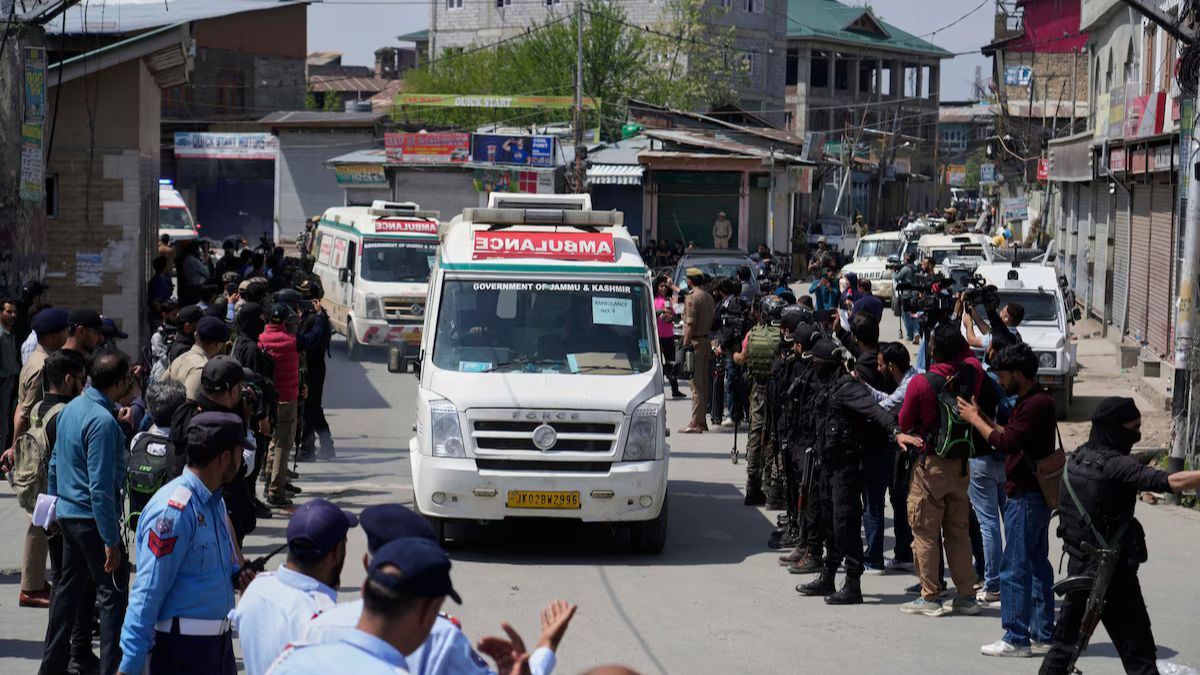In the wake of a deadly militant attack in Indian-administered Kashmir that claimed the lives of 26 tourists, India has sharply escalated diplomatic tensions with Pakistan, taking a series of punitive steps that reflect the deepening mistrust between the two nuclear-armed neighbors. The developments mark a significant deterioration in already strained bilateral ties and are likely to have long-term implications for regional stability in South Asia.
Deadly Attack Rekindles Kashmir Crisis
The attack, which occurred on Tuesday in the volatile region of Kashmir, has reignited the long-standing and often violent dispute over the territory. According to Indian authorities, three suspected militants—two of whom are Pakistani nationals—were involved in the attack. The militants reportedly forced men to recite Islamic verses, executing those who failed. A little-known group, Kashmir Resistance, has claimed responsibility, citing grievances over alleged demographic changes due to the settlement of over 85,000 outsiders in the region.
India’s Diplomatic Retaliation
In response, India has taken unprecedented diplomatic measures:
Summoning of Pakistan’s Top Diplomat: Saad Ahmad Warraich, the highest-ranking Pakistani diplomat in New Delhi, was summoned by the Ministry of External Affairs late Wednesday night to formally express India’s anguish and deliver a series of retaliatory steps.
Downgrading of Diplomatic Ties: India will reduce its mission staff in Islamabad from 55 to 30 and withdraw its defense attachés. Pakistani defense personnel in New Delhi have been declared persona non grata and are expected to leave within a week.
Suspension of Key Agreements:
Indus Waters Treaty in Abeyance: India has temporarily suspended the implementation of the Indus Waters Treaty, a 1960 World Bank-brokered agreement that has withstood multiple wars.
Closure of a Land Border Crossing: A key point of bilateral movement has been shut down.
Visa Exemption Revoked: Pakistani citizens will no longer be allowed entry under the previous visa relaxation scheme.
Political and Strategic Context
The attack and India’s sharp response come amid ongoing political narratives from Prime Minister Narendra Modi and the ruling Bharatiya Janata Party (BJP). Since revoking Article 370 in August 2019, which granted special status to Jammu and Kashmir, the Indian government has projected peace and economic development in the region as a key achievement. However, Tuesday’s attack presents a stark contradiction to that narrative, raising questions about the true extent of stability and integration in the region.
In response to the crisis, Modi has convened an all-party meeting, signaling the gravity of the situation. Meanwhile, Pakistan’s Prime Minister Shehbaz Sharif has called a national security committee meeting, indicating that Islamabad is bracing for a complex diplomatic challenge.
The Indo-Pak Political Flashpoint
The Kashmir conflict lies at the heart of Indo-Pakistan tensions. Since 1947, the territory has been a flashpoint, triggering three wars and numerous border skirmishes. India accuses Pakistan of sponsoring cross-border terrorism as a state policy, while Pakistan views India’s actions in Kashmir as colonial and oppressive.
The latest move to suspend the Indus Waters Treaty could be particularly alarming. As a lifeline for agriculture and drinking water in both countries, any disruption can trigger humanitarian and environmental crises. Furthermore, the treaty had been one of the few consistent areas of cooperation—even during periods of extreme hostility.
Broader Implications and International Stakes
These developments come at a time of global instability, with geopolitical focus increasingly shifting towards Asia. Any conflict escalation between India and Pakistan would not only destabilize South Asia but also pose serious risks to global peace, considering both countries possess nuclear arsenals.
The international community, particularly the United Nations and the United States, has historically played a behind-the-scenes role in urging restraint. However, the weakening of multilateral diplomacy and the increasing assertiveness of both New Delhi and Islamabad may limit the impact of such interventions.
Conclusion: A Pivotal Moment in South Asian Diplomacy
India’s tough diplomatic stance post-Kashmir attack signals a new chapter in Indo-Pak relations—one marked by minimal engagement, strategic signaling, and heightened military preparedness. While New Delhi seeks to project strength and security under Modi’s leadership, Islamabad may be pushed into a defensive or reactionary posture.
Whether this becomes a temporary flare-up or a protracted diplomatic cold war will depend on forthcoming actions by both states and the international community’s willingness to mediate. One thing is clear: the Kashmir conflict remains unresolved at its core, and without meaningful dialogue, such tragedies and diplomatic ruptures are likely to recur.



